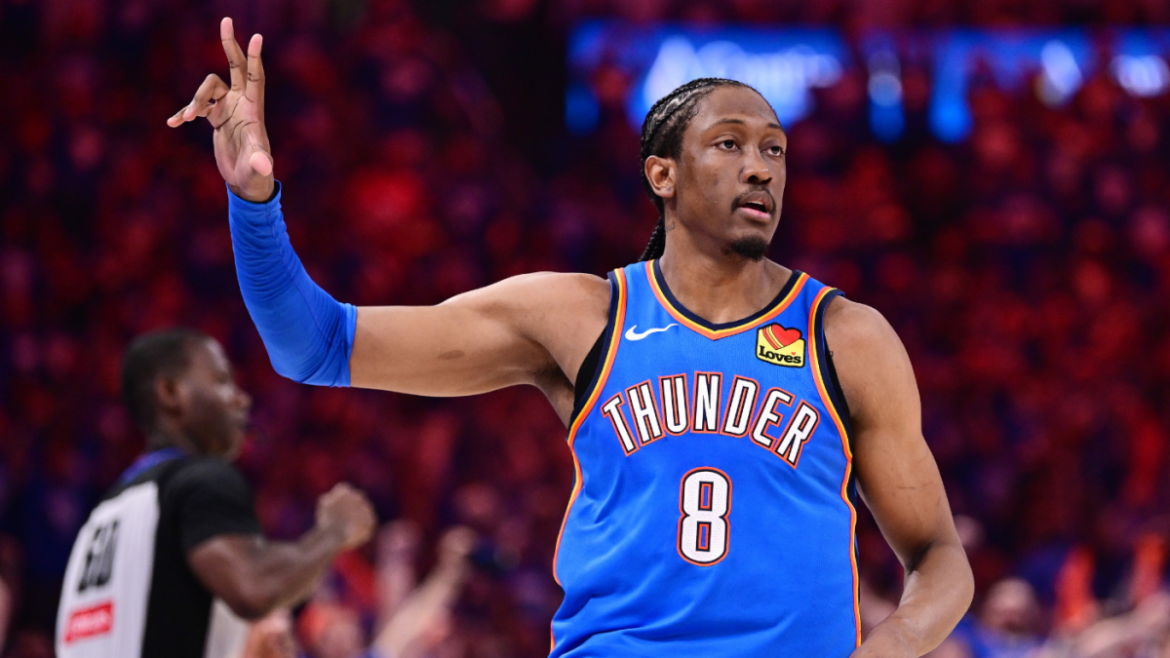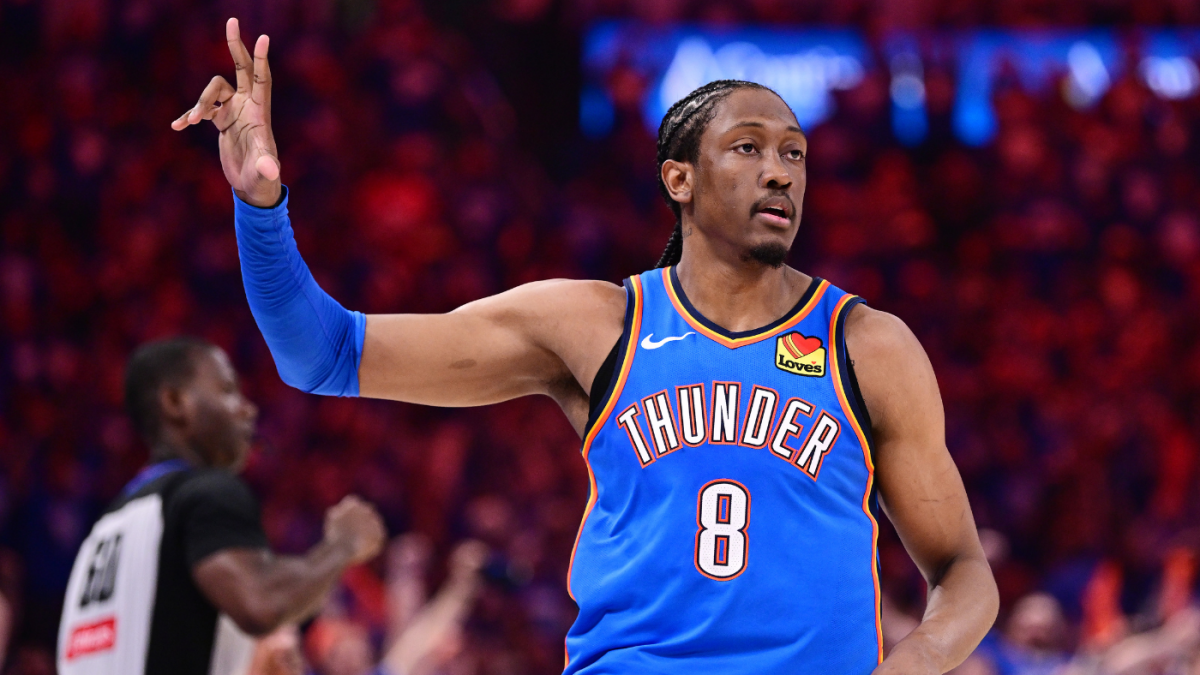The Incident: Jalen Williams Fined $25,000 by the NBA for Profane Clothing
Jalen Williams, a standout guard-forward for the Oklahoma City Thunder, faced a $25,000 fine from the NBA after appearing at a postgame media session wearing a shirt that displayed profane language. This disciplinary action was announced by Byron Spruell, the NBA’s President of League Operations, following the Thunder’s dominant 125-93 victory over the Denver Nuggets in Game 7 of their conference semifinals.
Williams’ fine was not related to any conduct or language during the game or press conference but strictly focused on his attire. The shirt reportedly bore a phrase along the lines of “Fk Art, Let’s Dance,” which drew the league’s ire due to the presence of explicit language. This action aligns with the NBA’s regulations on player presentations at public events, which prohibit clothing with profanities.
Context and Background: Setting the Scene
The postgame media session occurred shortly after one of the Thunder’s most significant victories this season, underscoring the emotional atmosphere. Williams had contributed notably on the court, scoring 24 points in what was a commanding Game 7 rout of the Denver Nuggets.
The league’s fine, while a strict enforcement measure, also reflects the NBA’s ongoing efforts to maintain a professional image both on and off the court. The NBA has a history of fining players who violate its dress code policies or public conduct standards during official events and media appearances. These policies are designed to balance player individual expression with maintaining a generally family-friendly and advertiser-appropriate environment.
Implications for the Player and League
This fine places Williams among other high-profile players who have faced similar disciplinary actions for language or apparel deemed offensive or inappropriate. The $25,000 penalty is significant but not unprecedented, as other players have faced higher fines for direct verbal profanity during live interviews or games. For example, Minnesota Timberwolves’ Anthony Edwards was fined $100,000 recently for using profanity during a live TV interview, marking an escalation in how the league manages such offenses.
Beyond the monetary fine, enforcement sends a signal about the boundaries of expression accepted by the league at media events. This serves as a reminder to players that their public appearances are under scrutiny and that dress and conduct codes will be upheld. The league continues to navigate the balance between supporting players’ freedom of expression and upholding standards expected by fans, sponsors, and broadcasters.
Broader Cultural Dynamics: Expression vs. Regulation
Williams’ choice of apparel — a shirt declaring “Fk Art, Let’s Dance” — can be seen as an example of a broader trend where athletes use fashion and media moments as platforms for personal or cultural statements. This trend blurs the lines between professional sports and pop culture, with players often pushing boundaries to voice individuality or emotions.
However, the NBA’s response underscores the tension between this cultural shift and institutional expectations. Organizations like the NBA tread carefully between protecting their brand’s integrity and allowing athletes personal expression. Fines and penalties for profane attire reflect institutional efforts to keep public messaging consistent with their values and commercial interests.
Conclusion: The Fine as a Reflection of NBA’s Standards and Culture
Jalen Williams’ $25,000 fine for wearing a T-shirt containing profanity during a high-profile postgame press conference highlights the complex interplay of individual expression, league standards, and commercial considerations in professional sports. While Williams celebrated a pivotal victory with his team, the choice of his clothing led to a significant financial penalty, reaffirming the NBA’s commitment to managing public presentation and conduct.
This incident is a reminder that players operate within a structured environment where personal statements must sometimes yield to professional boundaries. As the NBA evolves culturally alongside its athletes, moments like this frame the ongoing dialogue about the limits and possibilities of expression in the sports world. Williams’ fine, while a setback financially, also spotlights how athlete expression continues to influence and challenge league policies.
In sum, the incident serves as a microcosm of the broader challenges the NBA faces in balancing respectability with the increasingly expressive and culturally engaged nature of its players and fan base.





